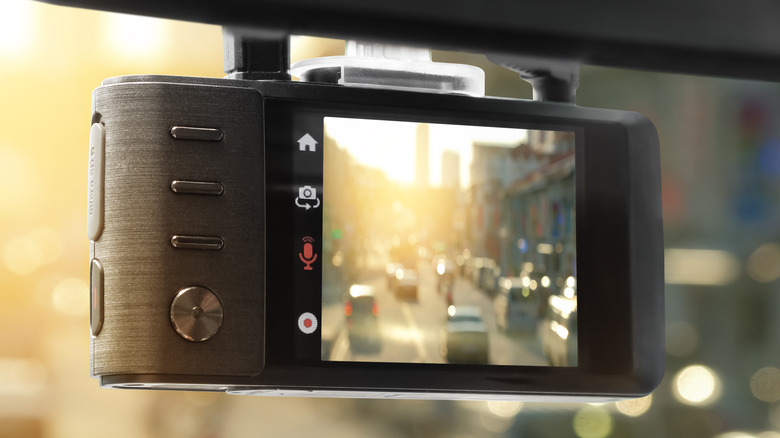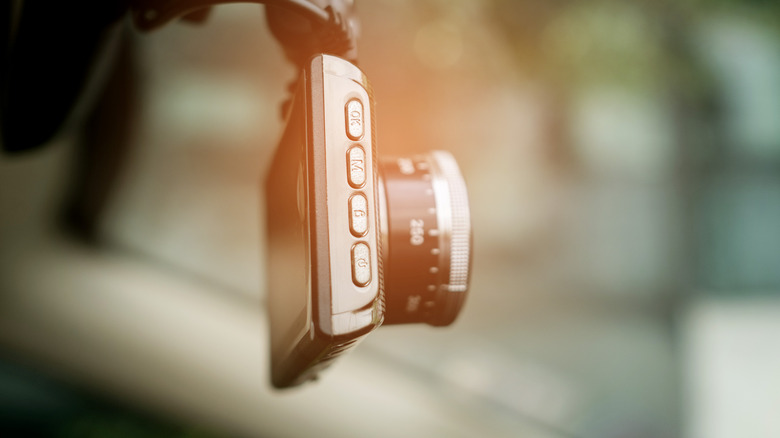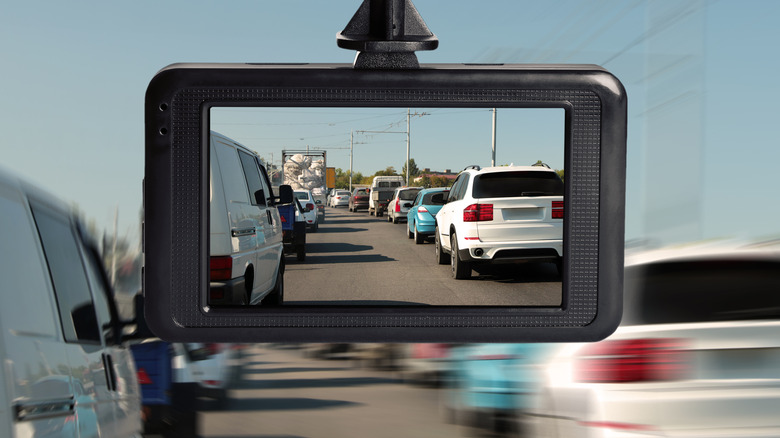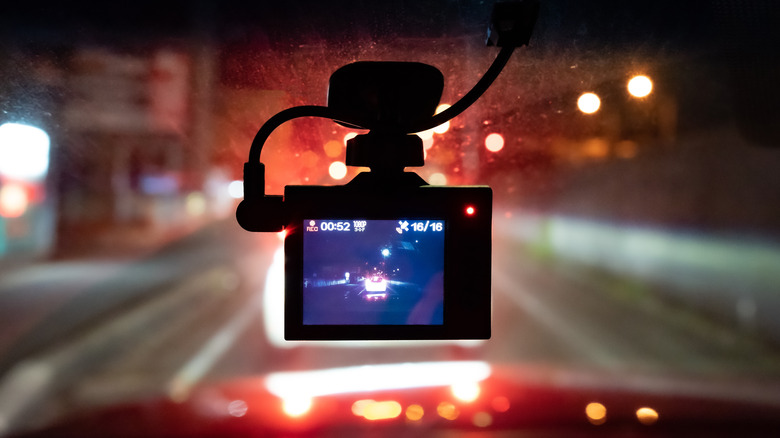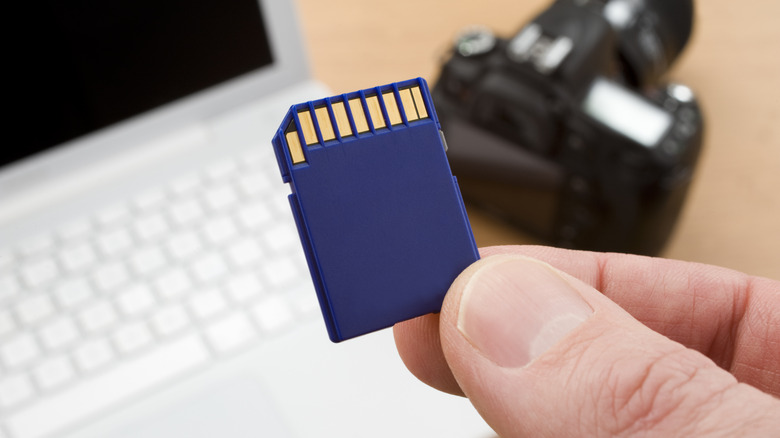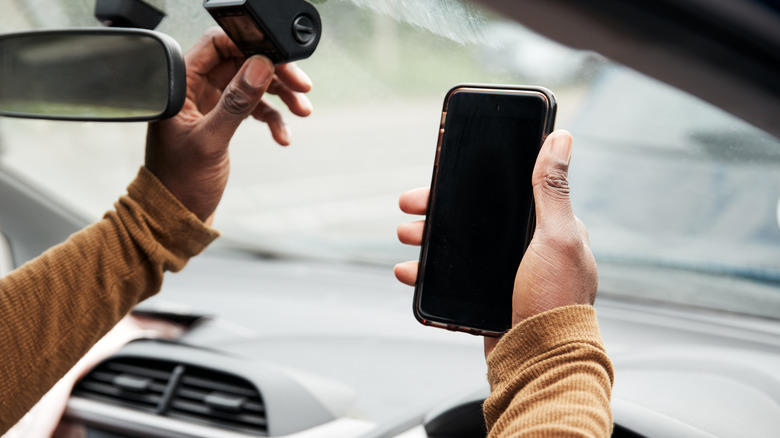5 Things To Consider When Buying A Dashcam For Your Car
Dashboard recording devices have gone from a technology used primarily by law enforcement agencies to one regularly found in the vehicles of everyday drivers. They're being used by those citizens for everything from recording everyday roadway encounters and providing legally admissible evidence in the case of an automobile accident to protecting citizens' essential civil liberties.
With demand for dashcams on the rise, the market has essentially been flooded by new products, making it a challenge for even the most in-the-know tech-head to figure out which one best suits their needs. As with all tech, there's no such thing as a one-size-fits-all sort of device, so you'll likely need to do some serious research before you shell out some of your hard-earned money on a shiny new dashboard device. You'll even need to think about whether or not you want your new dashcam fastened to your actual dashboard.
There are, of course, numerous other things to consider before you buy a dashboard camera. These five factors should top the list of any prospective buyer.
Cost should play a role in your dashcam purchase
The first thing one should consider when eyeing a dashboard camera is whether or not you even need one, but we're gonna go ahead and assume you've already made that all-important decision. Since you're officially in the market for a new dashcam, the next thing you'll want to think about is how much money you're willing to spend on it.
As with any tech purchase, once you've set your budget, you'll want to stick as close to it as possible. That could prove tricky on the consumer dashcam market, however, as the prices vary as dramatically as the quality of products. On the low end, a no-fuss dashboard camera can be had for around $30, with mid-range devices ranging from $100 to $300. However, if you want to go all-out on your dashcam purchase, you could drop north of $1,000 on a high-end device fronting all the bells and whistles you can fathom.
If you're a full-time driver looking to protect yourself when on the road, this pricey investment may be worth the peace of mind. Still, it's safe to assume most folks in the market for a dashcam don't need such extravagance. You'll have to decide that for yourself. If you need a little more insight on price and quality, you can always consult our dashcam buyer's guide for some of the best options available.
Dashcams offer varying degrees of image quality
One factor that is certain to affect how much money you ultimately spend on your dashboard camera is image quality. These days, dashcams can be every bit as advanced as a high-end digital camera. That includes dashboard cameras offering anything from proper 1080p resolution to actual 4K Ultra, with the coveted latter feature raising the price of your device considerably. It's worth considering, of course, that image resolution could play a key role in verifying facts in the case of an accident, so you may not want to skimp there.
Perhaps more important to consider than 4K shooting capability is a dashcam's field of view, as there's not much point in recording your surroundings if you're limited in how much of those surroundings can be recorded. While the position you mount your camera in will impact this, there are plenty of other factors to consider. One of the trickier matters you'll encounter in your research is that there's no true industry standard regarding the field of view, and many manufacturers aren't forthcoming with that information. For this reason, you may get a better feel for a camera's field of view in a retail environment, or you can seek out footage from those cameras online.
Again, these factors will come down to your personal preferences. Either way, it pays to know exactly what you want from your camera before you begin your research.
Camera functionality may be of concern to many buyers
Once you've settled on your dashcam's image quality standards, you'll also want to consider functionality. There are a couple of factors to mull over regarding functionality, not the least of which is how well your dashcam performs at night.
In the digital camera age, low-light technology has made recording quality night footage easier than ever. If you spend most of your time behind the wheel when the sun is down, you'll want to ensure your dashcam is utilizing that tech since usable images on a darkened road could be the difference in proving your innocence in an accident. Not every dashcam is created equal in the low-light shooting department, so if that's important, make sure the one you buy is on the level.
In terms of functionality, those utilizing a dashcam to record ride-shares or potentially dodgy traffic stops will want to be sure their camera captures footage inside the vehicle's cab. This could also be important for shipping companies looking to track a driver's behavior behind the wheel. There are cameras on the market equipped with smartphone-like front and rear-facing lenses, and they're well worth the investment if you deem that feature necessary. Of course, a driver could also solve the problem by affixing a front-facing camera to a swivel mount and turning it manually.
You'll want to account for storage capacity when thinking about a dashcam
If you've spent any time logging and storing video footage, you know that SD cards can fill up with astonishing quickness. That's also true with dashcams, even if you aren't planning on having yours in record mode full-time. As such, when researching dashcams, you'll want to pay close attention to the device's storage capacity.
Most dashcams manage local storage through a removable MicroSD card, and most budget 1080p cameras come equipped with a card boasting a storage capacity of 32GB to 64GB. Higher-end cameras shooting higher resolution tend to require more storage capacity and can come with cards boasting as much as 256GB of storage or more. Whatever your camera comes with, you can usually increase the storage capacity with a card built to handle more gigs.
Most dashcams also operate via loop recording, which means they delete older footage in favor of new footage when a storage card is full. If you need to hang on to a video for the long haul, you'll want to find an alternate storage method, like an external hard drive or a cloud storage service. Some dashcam models also come with a small amount of internal storage. While it won't be enough to capture more than a couple of days of driving, it could prove invaluable in helping you retain some vital footage until you can log it elsewhere.
Wireless connectivity could greatly simplify your dashcam experience
With wireless tech and smart devices readily available on the consumer market, the world is more connected today than ever. If you revel in connectivity, wireless features will be high on your must-have list when researching dashboard cameras. If that's the case, you'll be happy to know there are several great dashcams on the consumer scene with wireless capability.
Cameras with wireless capability tend to cost a little more than those that don't. However, you can easily argue the advantages of such connectivity far outweigh the price difference. For instance, dashcams with Bluetooth connectivity can make it possible to easily download, view, and manage stored video footage through your smartphone. Likewise, if your dashcam has internet connectivity, you may even be able to offload footage to cloud storage directly from the camera itself when connected to a Wi-Fi network.
With many dashcams boasting tiny screens and sometimes hard-to-navigate settings menus, such functionality could be a legitimate game-changer in your experience. When it comes to such a potentially vital device, ease of use becomes increasingly important.
